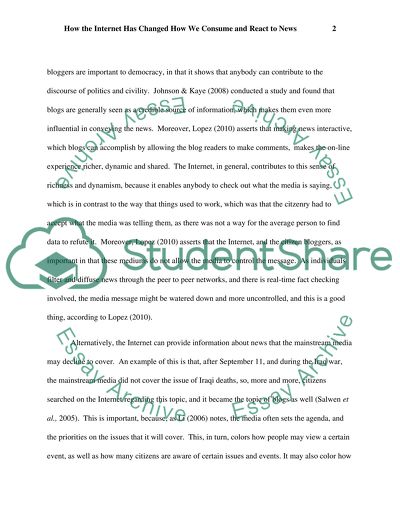Cite this document
(“How the Internet Has Changed How We Consume and React to News Essay”, n.d.)
Retrieved from https://studentshare.org/journalism-communication/1458456-1-analyze-the-impact-of-the-internet-on-journalism-in-constructing-your-essay-you-may-want-to-draw-upon-what-neil-postman-sa
Retrieved from https://studentshare.org/journalism-communication/1458456-1-analyze-the-impact-of-the-internet-on-journalism-in-constructing-your-essay-you-may-want-to-draw-upon-what-neil-postman-sa
(How the Internet Has Changed How We Consume and React to News Essay)
https://studentshare.org/journalism-communication/1458456-1-analyze-the-impact-of-the-internet-on-journalism-in-constructing-your-essay-you-may-want-to-draw-upon-what-neil-postman-sa.
https://studentshare.org/journalism-communication/1458456-1-analyze-the-impact-of-the-internet-on-journalism-in-constructing-your-essay-you-may-want-to-draw-upon-what-neil-postman-sa.
“How the Internet Has Changed How We Consume and React to News Essay”, n.d. https://studentshare.org/journalism-communication/1458456-1-analyze-the-impact-of-the-internet-on-journalism-in-constructing-your-essay-you-may-want-to-draw-upon-what-neil-postman-sa.


